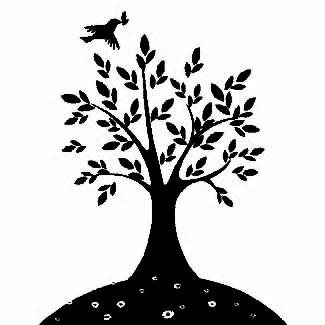Eleventh Sunday of Ordinary Time (Year “B”)—June 17, 2012

JESUS' PARABLES SURPRISE AND CHALLENGE
[Ezekiel 17.22-24 [Psalm 92]; 2 Corinthians 5.6-10; Mark 4.26-34]
Parables are short stories taken from everyday life that offer a surprising turn or reversal of expectations. The unusual twist in the story provokes reflection, inviting its hearer to make a decision about how he or she might live in light of the truth revealed by the parable. For, as Paul reminded the Christians of Corinth, “all of us must appear before the judgment seat of Christ, so that each may receive recompense for what has been done in the body, whether good or evil”.
In chapter four, Mark draws together several parables to show how Jesus helped His listeners imagine the new reality of God's kingdom (4.1-34). The parable of a farmer sowing seeds that produced extraordinary yields—even a hundredfold (Mark 4.1-20)—appeared in the liturgy last year when Matthew's account was read.
This week we explore a parable unique to Mark's narrative—the “seed growing secretly” (4.26-29)—along with the parable of the “mustard seed” (4.30-32), which appears in several versions in the synoptic gospels, as well as in the apocryphal Gospel of Thomas. Lastly, we see how Mark brings the parable collection to a conclusion with comments on the reason Jesus taught in parables (4.33-34).
One parable said God's kingdom was like seed planted by a farmer that grew day and night until the harvest came. This parable noted three distinct moments in the dynamic process of the kingdom: sowing, growth and harvest.
This brief similitude moves back and forth between the seed and the farmer. The first part stresses the farmer's action in sowing and the conclusion his role in harvesting. The central part observes that the seed sprouts and grows on its own, even though the farmer “does not know how”.
The parable invites people to grasp that God's kingdom germinates, grows and matures without enhancement from visible, external causes. The parable challenged those who saw little evidence of God's presence in Jesus' ministry or the church's early days. It invited them to believe in a hidden mystery at work in their midst.
The parable says little about the time between seeding and harvest. All the while, however, growth is taking place, and the time of harvest—the consummation of God's reign—must be near. In biblical literature, images of harvest implied notions of judgment. People would be called to account—did they act when they learned that God's kingdom was in their midst and required a response from them?
The mustard seed parable stresses a surprising contrast, between the smallness of the seed and its growth into a plant where birds can nest in its shade. The metaphor seems a surprising choice for Jesus' description of God's kingdom. One would have thought that discussion of God's sovereignty over people's lives would have demanded a stress on the kingdom's greatness!
Jesus' use of the mustard seed to illuminate God's kingdom underlined the infinitesimal dimension of God's rule relative to popular expectations in his time. Still, smallness was not the whole story. For the fully grown mustard plant “becomes the greatest of all shrubs”.
In contrast with Ezekiel (17.3-4; 31.2) and Daniel (4.20-22), who called on tree imagery to represent various kingdoms, Jesus used a bush to represent God's fully-developed kingdom. The mustard seed parable tells of a kingdom which, for all its marvellous expansion, remains lowly.
By comparison with worldly kingdoms (great trees), God's kingdom (the mustard bush) does not seem unusually large. But it has branches large enough “that the birds of the air can make nests in its shade”.
Ezekiel had spoken of God taking a cedar twig and causing a great tree to sprout from it. In the shade of this tree's branches would “nest winged creatures of every kind”. When Jesus spoke of nesting birds, he suggested the inclusive nature of God's kingdom open to all nations on earth.
No comments:
Post a Comment